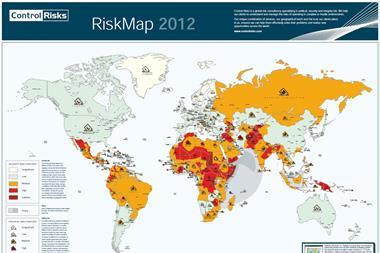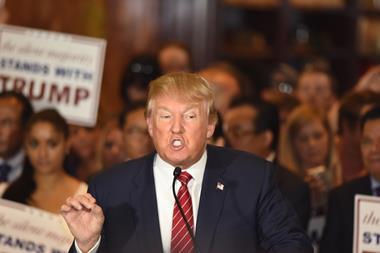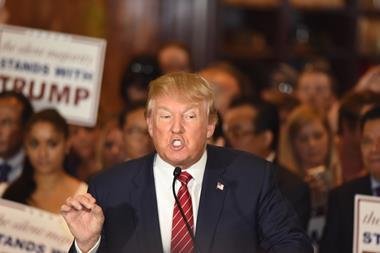Regime-changing revolutions in Egypt have altered a long-established landscape of illegal transactions and questionable deals, but in whose favour? And how long until business as usual returns to the country?
After the dramatic 18-day revolution that toppled the regime of Hosni Mubarak, former army hero turned dictator, the business world in Egypt remains in turmoil.
Local businessmen are being hauled before the courts in their hundreds or even thousands and their assets frozen in a general campaign against corruption that is almost turning into a witch hunt, according to StrategicRISK sources. At least two businessmen from the Gulf region have been convicted in absentia.
Some pre-revolution deals are being unwound, especially those involving formerly state-owned assets such as the privatisation of department store chain Omar Effendi, bought by Saudi investors at a knock-down price. The sale of large areas of re-zoned agricultural land at reduced prices could also be reversed unless it has already been developed into commercial or residential projects.
The once buoyant economy has taken a dive, partly because of unrest and violence. According to Maplecroft: “Companies face an increased risk of their property being damaged or stolen.”
Some essential governmental functions have gone into slow motion or stopped dead. In late May, Seacom, an undersea cable company, was experiencing delays in the approval process for its new cable in the Red Sea running alongside Egypt. It is “a tough place to do business in right now”, complained Seacom head of business development Aidan Baigrie.
Proceeding with caution
Transfers of capital abroad have slowed because of the central bank’s fears that illegal assets may flee the country.
The bank requires volumes of documentation before approving requests.
Politically, there’s a temporary military government that is reluctant to hold power past this year and has set a timetable, regarded as reasonably firm by most observers, for properly democratic elections. Parliamentary ones are due in September and presidential ones in December.
The main concern is about what kind of democracy will replace it. Moderates worry that the Muslim Brotherhood, banned from previous elections, may dominate with the aid of militant fundamentalists. Mohamed ElBaradei, a winner of the Nobel Peace Prize who has declared himself a presidential candidate, describes the situation as a “political and constitutional mess”.
And yet there’s hope. As Control Risks Middle East analyst Lucy Jones told StrategicRISK: “In the long-term Egypt will be a hugely attractive market.” She cites its large and increasingly aspirational market of 82 million people and its generally pro-business environment.
Maplecroft associate director Anthony Skinner adds: “The starting point with Egypt is that it has very strong economic potential.” As he points out, despite its bureaucracy and corruption, pre-revolutionary Egypt averaged GDP growth of around 6%.
Even fears of the purge of corruption could be misplaced, at least among Western businesses. It is considered unlikely to reach foreigners apart from those, mainly from the Gulf, who struck blatantly dishonest deals.
“The government is not trying to target foreign businesspeople in any way,” Exclusive Analysis senior forecaster Firas Abi Ali explains. “Egyptians would rather compromise and settle [questionable deals] than expropriate foreign investment. If a businessman has just invested in a factory, there’s no way it will be taken away.”
However, most international companies operating in Egypt – or planning to do so – are sitting on their plans until the dust of the revolution settles. “Investors are waiting for stability to return,” notes Maplecroft’s Skinner.
A changing climate
First, the purge on corruption. The jailing of business leaders such as Ahmed Ezz, founder of the steel giant named after him, under corruption charges marked a dramatic change of commercial power.
These investigations have almost paralysed some sectors of the economy, not only the firm concerned but its subsidiaries and suppliers. According to Control Risks, there’s only been two convictions so far but more are likely as scores are settled, albeit against indigenous businesspeople close to the dictatorship.
However, looking ahead, relative normality may not be too far away. The new government is expected to support business, especially foreign business, because of the urgent need to create jobs and grow the economy. Foreign direct investment is considered vital in this.
The European Bank for Reconstruction and Development wants to pump capital into Egypt in a show of support for democracy, a move that should kick-start a recovery. The stock exchange reopened in late March, albeit in a much attenuated form because of suspended share trading in suspect companies.
And although corruption remains endemic, as Maplecroft points out in a May report about a nation that always appears well down Transparency International’s corruption league table, some observers like Control Risks’ Jones remain optimistic. “If dealt with properly, the backlash over corruption could have a positive effect on the long-term business climate.”
Nobody expects Egypt’s opaque way of doing business to disappear overnight. Although the ringleaders among the civil service have been targeted, smaller fry remain in place. “There will be a fall in corruption but it won’t be a large one,” Abi Ali adds.
It certainly won’t be a case of ‘back to the future’ for Western business. In the long run foreign companies will have to work with a much bigger constituenc y than they did under Mubarak, say Egypt watchers. That constituency will include not only local officials but more militant workers in the coming battle between a relatively poor workforce and the economic elite.
And while most foreign companies are expected to sit it out until the elections, those plunging in now should be sure to do their homework. “An acquisition of an existing company could be dangerous,” warns Jones. “It’s a time for due diligence, especially of potential partners.”
By common consent, the big fear is that the return to stability could be ruined by a new government that dashes, as Maplecroft puts it, “the high expectations of the revolution”. That question will be answered in September. SR
Key points
01: Mubarak was forced out of office after 30 years of presidency in Egypt, accused of corruption and abuse of power
02: Suspicions of illegal dealings throughout Egypt are now being thoroughly investigated
03: Companies in Egypt now face increased risk of property damage and theft while the situation stabilises
04: A question mark hangs over the kind of new political landscape that will take shape
05: In the future businesses will have to work with a much larger constituency


















